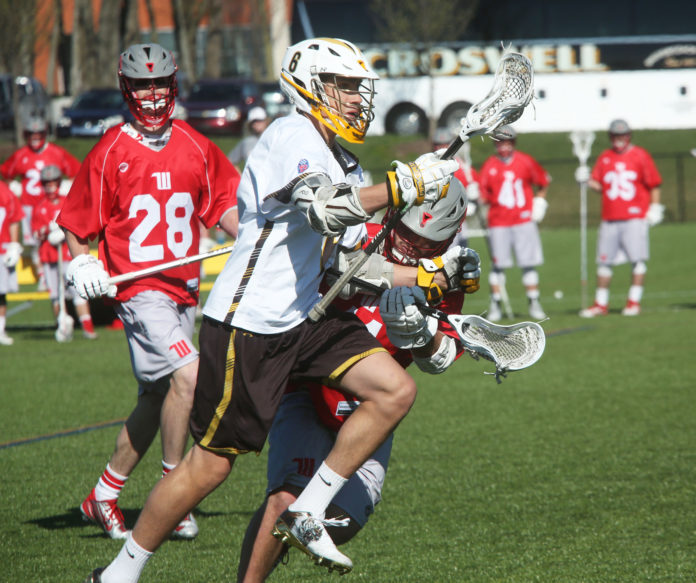
The DePauw University Board of Athletics is still discussing the possibility of implementing a sexual assault policy similar to that of Indiana University.
Indiana University’s policy now bans any prospective student athlete from participating in athletics if they have a criminal record of any sexually violent crimes. According to the publication: “Indiana University Athletics Policy Disqualifying Prospective Student-Athletes with Records of Sexual Violence,” the policy was designed, “to help protect all members of the Indiana University community.”
All prospective Indiana University student athletes must disclose all background information, undergo a criminal background check and have friends and teammates questioned about the prospective student athlete.
“I think that if DePauw were to implement something like this we would need all members of the campus community on board on this,” Renee Madison, Title IX coordinator and senior advisor to the president for diversity and compliance told The DePauw.
DePauw currently has a sexual assault policy under Title IX: Equity and Access that applies to all students, including student athletes. Title IX: Equity and Access is a federal law that ensures equality for all students at DePauw.
According to Athletic Director Stevie Baker-Watson, the board’s priority is to make campus safer, and a policy like Indiana University’s would “restrict certain individuals from being on campus. Athletics is only a portion of our student population. We need to be able to look at the total population.”
Creating a new policy that singles out athletes has also been a concern for some members of the DePauw community. “If there’s an argument for athletics having a policy, shouldn’t that argument apply to other organizations too?” Doug Harms, professor of computer science, told The DePauw.
Madison said close to 40 percent of DePauw students are student athletes.
“The discussion very much focused on why is athletics the only one that’s being singled out,” Baker-Watson said. “Why should a student then be allowed to be in student government or be a part of a student organization or something else on campus? It wasn’t just about athletics.”
Indiana University’s new policy also requires formal background checks on students athletes to ensure that student records are fully disclosed. “The other part of our discussion was that a lot of the things that, for instance, Indiana put in place in order to vet incoming student athletes and transfer student athletes was very time intensive and very financially resource heavy,” Baker-Watson said.
The university’s athletic board discussed whether or not a policy like this would be successful at DePauw. “We were trying to figure out how do we actually implement that and how would we be compliant with that? Are we truly going to be running background checks on every student athlete that comes in on campus,” Baker-Watson said.
Although changing DePauw’s sexual assault policy to one similar to Indiana University’s is still up for discussion, there have been some changes regarding sexual assault education for new athletes. The National Collegiate Athletic Association (NCAA ) has recently implemented some changes regarding sexual assault education for student athletes. The policy requires athletes to complete extra education about sexual assault. The NCAA has provided the NCAA Sexual Violence Prevention Tool Kit as well as an online resource called myPlaybook in order to ensure that all students and athletic faculty are educated.
DePauw’s athletic board is still discussing implementing a sexual assault policy similar to that of Indiana University’s, new DePauw athletes will be required to complete more sexual assault education and discussions beginning this year.
